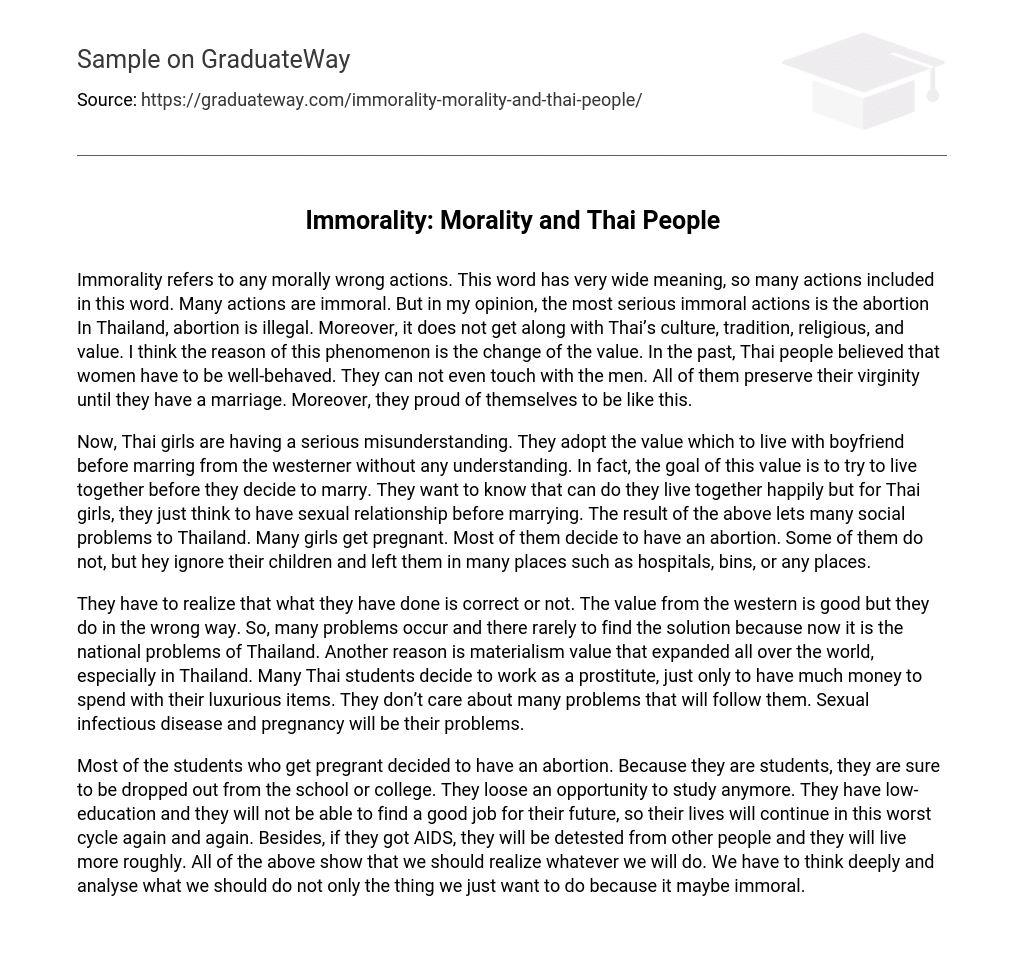Immorality, which refers to a range of morally unacceptable behaviors, notably includes abortion. In Thailand, this act is not only against the law but also clashes with the nation’s culture, tradition, religion, and values. The rise of this occurrence can be attributed to a shift in societal values. Previously, Thai society emphasized certain behavioral norms for women such as avoiding physical contact with men and maintaining virginity until marriage. Moreover, they took great pride in upholding these principles.
Thai girls are currently facing a significant misconception, which is influenced by Westerners. They have embraced the idea of cohabiting with their boyfriends before getting married but do not fully understand its purpose. The practice is meant to determine if they can successfully live together before committing to marriage. However, Thai girls only see it as an opportunity for engaging in sexual relationships before getting married. This mistaken belief has led to various social issues in Thailand, including many girls becoming pregnant. Although most choose to have abortions, some abandon their children in hospitals, bins, or other locations.
It is important for individuals to recognize the moral implications of their actions. The introduction of Western culture in Thailand has resulted in various issues for the nation. Furthermore, the widespread influence of materialistic values worldwide has also impacted Thailand. As a result, numerous Thai students opt to engage in sex work purely for financial reasons, without considering potential negative outcomes like sexually transmitted infections or unintended pregnancies.
Many pregnant students opt for abortion due to fear of expulsion from school or college, ultimately hindering their educational pursuits and limiting future job opportunities. This perpetuates a cycle of hardship. Furthermore, contracting AIDS would lead to societal rejection and increased hardships. These circumstances emphasize the importance of thoughtful decision-making. It is crucial to evaluate our choices and consider their ethical implications instead of succumbing to immediate desires.





